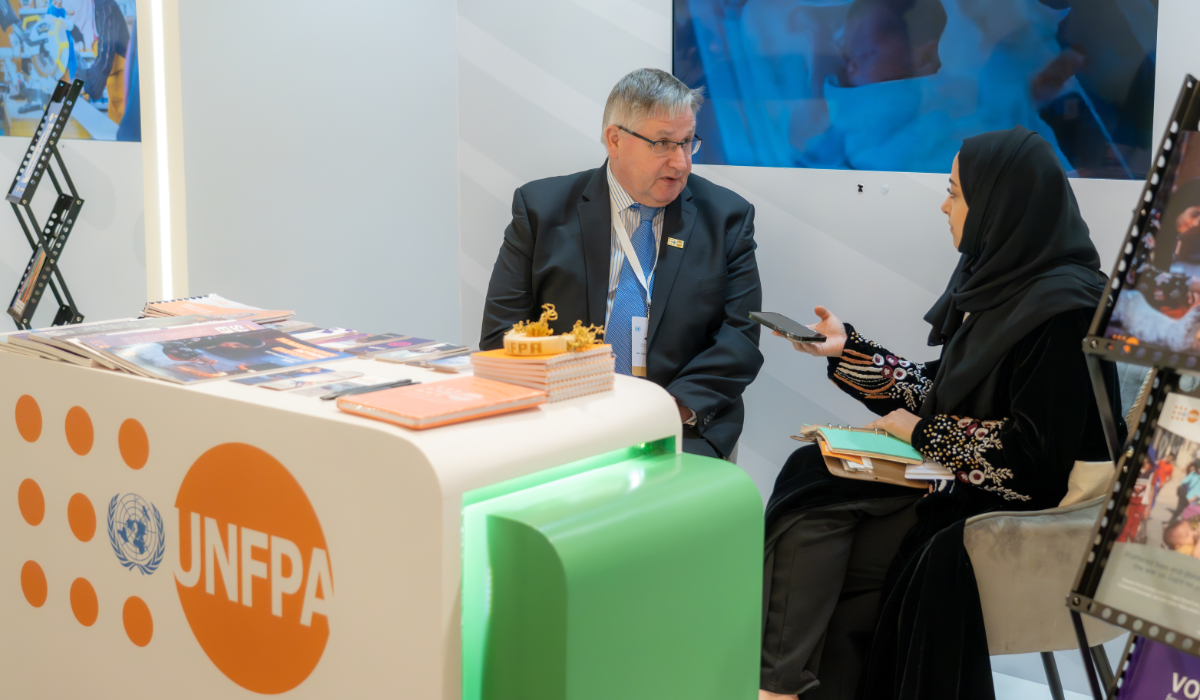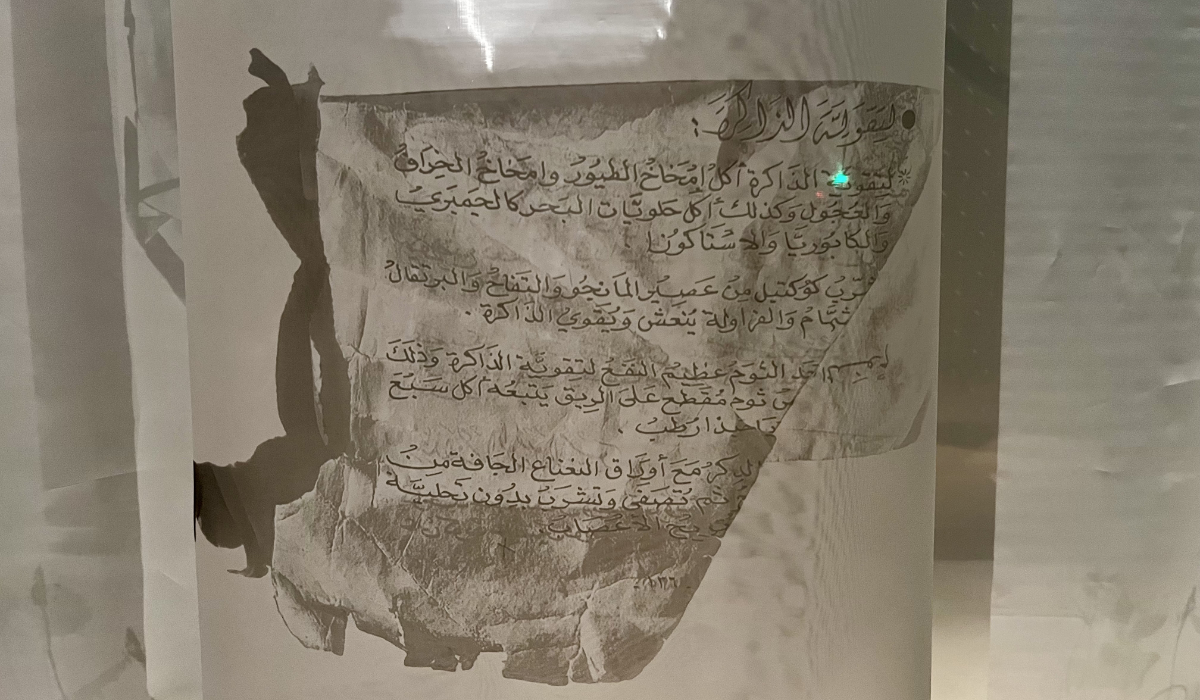RIYADH: Hundreds of members of the humanitarian community are in the Kingdom’s capital for the Fourth Riyadh International Humanitarian Forum as Saudi Arabia strives connect relevant bodies to improve access and funding.
Speaking to Arab News, Thomas Fletcher, UN under-secretary-general for humanitarian affairs and emergency relief coordinator said that the biggest challenges in providing life-saving aid worldwide are the lack of funding, lack of access and, an often sidelined factor: lack of efficiency.
“There is too much duplication, too much bureaucracy, too much waste,” he said. “We agreed last week at the IASC (Inter-Agency Standing Committee) that we need to cut through all of that … Yes, we need more money, but we also need to spend the money that we have more effectively.”

Thomas Fletcher, UN under-secretary-general for humanitarian affairs and emergency relief coordinator
Attending the conference in Riyadh to connect with the humanitarian community and drive the movement’s future operations, Fletcher was a part of the World Health Organization 2025 Emergency Appeal launched on Monday.
The appeal was launched during a panel session attended by Dr. Abdullah Al-Rabeeah, adviser to the royal court and general supervisor of the Saudi aid agency KSrelief, WHO director-general Dr. Tedros Ghebreyesus Adhanom, and members of other international humanitarian parties.
Another big focal point of the conference was on the eradication of polio, as Saudi Arabia has confirmed $500 million to the Global Polio Eradication Initiative, an agreement that will allow the initiative and its partners to help provide 370 million children with polio vaccines and permanently eliminate the disease.
Yes, we need more money, but we also need to spend the money that we have more effectively.
Thomas Fletcher, UN under-secretary-general for humanitarian affairs and emergency relief coordinator
Fletcher said that the Kingdom is an exporter of ideas as well as engagement and action on the ground: “You can see by the number of UN agencies who’ve come, the importance of their individual partnerships and that collective partnership for the UN family with Saudi Arabia.
“KSrelief has been around 10 years now and their funding will have saved millions of lives in that time … but it’s not just about the money, it’s about the partnership. It’s about actually sharing ideas and innovations and experience and a knowledge of the region as well.”
Dr. Sania Nishtar, chief executive officer of Gavi, the Vaccine Alliance, an international public-private partnership providing access to vaccinations for low-income countries, was also part of the polio eradication initiative.
In addition to supporting international health systems and strengthening governments’ ability to inject vaccinations, Gavi works to provide childhood and adult vaccines as well as provide vaccines during public health emergencies and pandemics.
“Over a period of time we are increasingly finding ourselves in situations … in geographies, where there are humanitarian situations in contexts that are fragile,” she told Arab News. “And those contexts are fragile because of armed conflict, because of natural disasters, because of internal migrations. And increasingly we find our scope of work cross cutting with humanitarian operations.”
Gavi has recently incorporated new standard operating procedures to deal with humanitarian situations, and the conference in Riyadh opens doors to furthering those operations through fruitful partnerships.
Nishtar said that the alliance has approached the Saudi government to partner with them for their 6.0 Strategy.
The 6.0 Strategy is Gavi’s next operational plan expected to be in order from 2026 to 2030. It will double down efforts to reach more people and tackle diseases quicker than ever before.
“That is a very important period because the (UN) Millenium Development Goals also sunset during that time,” Nishtar said.
Fletcher said that the UN Office for the Coordination of Humanitarian Affairs must remain neutral and independent among geopolitical boundaries to provide unfiltered aid for those in need.
“It doesn’t mean we don’t pick a side, it means we pick the side of the people that we’re there to serve … we can’t be pushed around by governments no matter how rich they are.”
Delivering aid in conflict zones is a unique challenge; with the ceasefire in effect in Gaza, OCHA has been able to deliver more than 20,000 aid trucks in one month and provide food to 2 million people.
If the ceasefire collapses, however, as Fletcher noted it was “hanging by a thread,” then OCHA’s ability to provide aid at that scale will collapse as well.
Nishtar added that Gavi has recently made $20 million available for the procurement of vaccines and their administration in Gaza.
According to Fletcher, the new caretaker administration in the Syrian Arab Republic under Ahmed Al-Sharaa has been removing obstacles previously placed by the Assad regime.
There is a big opportunity in Syria, he said, but from food to electricity and more, the needs are massive.
“We’ve got to clear all that unexploded ordnance. We’ve got to help people return to their homes, start to rebuild their lives, their communities. It’s a moment of fragile hope,” he said.
As a humanitarian, Fletcher said that he does not believe sanctions should get in the way of any aid delivery.
The OCHA team is also helping those displaced in Ukraine and providing food and shelter to those fleeing the conflict.
Nishtar said that the biggest challenge Gavi faces in areas of conflict is that the conventional modalities of operation become inadequate.
For Gavi’s Zero Dose Program’s current work in Africa, for example, the International Rescue Committee has partnered with them in 11 countries to provide access to children who have never received a single dose of vaccines.
“So, it’s both the policy side, the institutional framework, the human resource side, the norms, the funding arrangements, and the execution partners that comprise our new approach to dealing with conflict and fragile settings,” she said.
On how climate change and climate-induced food insecurities affect their operations, Fletcher said that it is continually seen that the climate crisis overlaps with existing inequality, poverty, conflict, and political fragility, creating a “perfect storm” of humanitarian crises.
“I think the risk at the moment is that some governments want us to stop talking about climate change, but climate change isn’t going to go away just because of a few elections. For every degree the climate heats up, a billion people will be displaced,” he said.
Climate change also plays a role in the re-emergence of diseases once thought to be minimized or eradicated, such as dengue in many parts of Latin America, malaria, and yellow fever, Nishtar said.
Vectors, the insects that carry certain diseases, start to behave differently with changing temperatures.
“With climate change, you have a number of different catastrophes, there are droughts and floods, and these situations bring additional challenges in their wake,” she said. “I come from Pakistan where there have been massive floods in the last 10 years and every time there’s a flood, you know, there’s a cholera outbreak and there’s a typhoid outbreak.”
Due to the cyclical nature of humanitarian crises constantly giving birth to one another, one of the toughest parts of the job is ruthless prioritization, Fletcher said.
OCHA launched an annual global humanitarian overview where it identifies the present global trends in humanitarian needs and crises.
Their 2024 overview identified 300 million people in dire need of help, out of which 190 million had to be prioritized for action should funding, in the amount of $47 billion, come through.
“Yemen, Syria, occupied Palestinian territory, Sudan, Democratic Republic of Congo are all right up there on that list,” Fletcher said.
Last year, US funding accounted for about 40 percent of the contributions received for the UN-coordinated global humanitarian appeal, so the pause in the US and other nations’ funding has created a difficult monetary environment.
“Almost half of our campaigns are currently funded by the US government. So, to lose that support would be really a huge setback for our work with the world’s poorest people.”

































